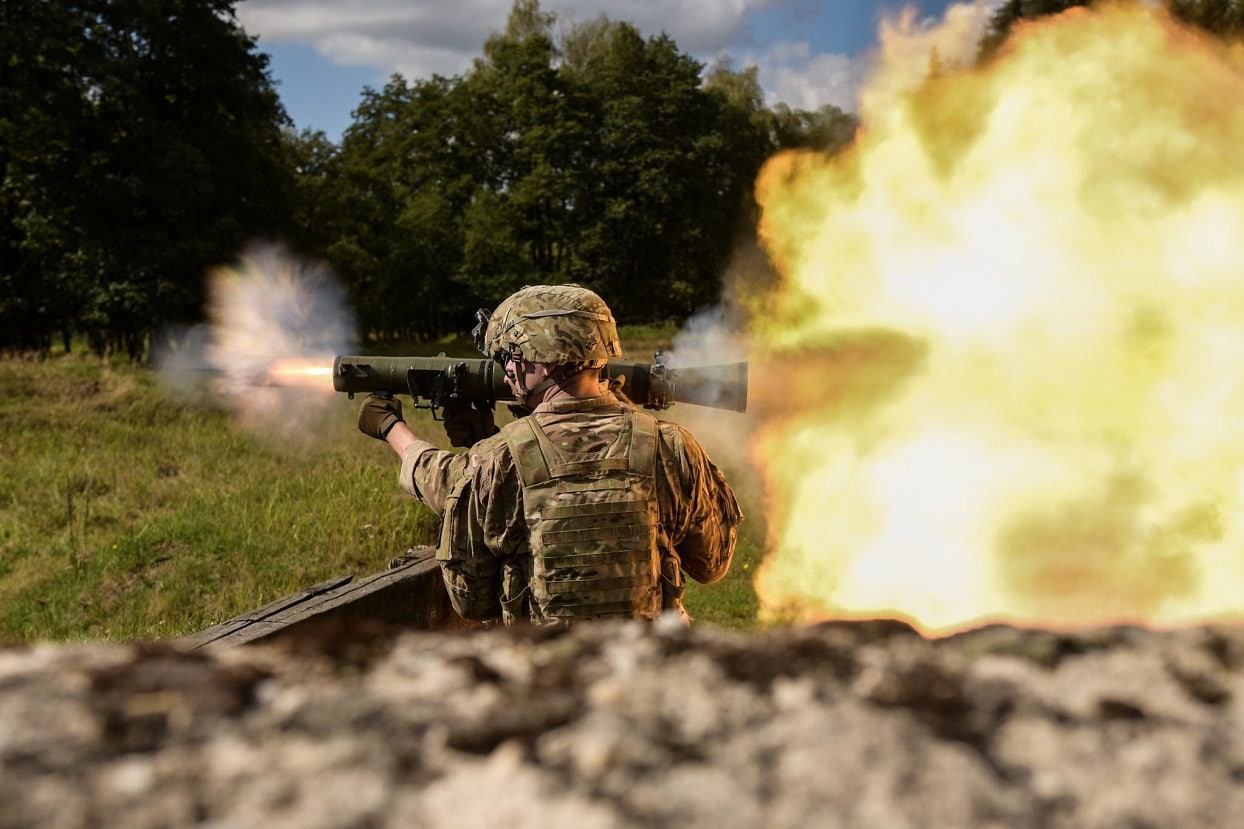Calls by U.S. leaders to extend security guarantees to Taiwan against an aggressive China are on the rise. American pundits have likewise been eager and disturbingly casual about offering up U.S. service members to go and die for Taipei. Before taking another step down this dangerous path, however, these leaders need to consider just how willing Taiwanese are to die for their own country.
Until we have more concrete evidence that the Taiwanese are doing all they can for their own defense, all talk of America risking war with China for their benefit needs to come to a halt. There is no justification for sending American men and women to die on the seas and in the air around Taiwan when the citizens of Taiwan are themselves cool to the idea of dying for their own country.
First is the classic “show me your checkbook and I’ll show you your priorities.” The United States places great value on protecting its citizens and global interests, as evidenced by the fact that we spend more on national defense than any nation on the planet, upwards of 3.5% GDP annually.
As recently as 2016, Taiwan was spending an anemic 1.6% GDP on defense, and next year is expected to be only slightly better, at 2.1%. Evidence suggests that constant boasts by U.S. opinion leaders that the United States should give security guarantees to Taiwan leads the island’s leaders to conclude they don’t have to spend money on their own defense because they believe we will provide it for them.
Second is the extent to which the citizens are willing to serve in the armed forces and risk their lives in defense of their country. In the United States, our all-volunteer force constantly produces sufficient numbers of service personnel to fully man the Army, Air Force, Navy, Marines, and Coast Guard. We don’t always meet the recruiting goals but we always have sufficient numbers of personnel.
In Taiwan, by contrast, the armed services are significantly understaffed. So few Taiwanese are willing to sign up for military service, in fact, that earlier this year frontline combat units in the Taiwan military were assessed as being manned at a shockingly low 60%.
The Taipei Times newspaper conducted research a few years ago into the attitudes of the recruitment-age youth in Taiwan, finding that large numbers were “(a)pathetic toward the military and averse to service.”
One former Taiwanese Marine seemed to capture the reason for the apathy well: “I think it’s unlikely that we will go to war. If there’s no real enemy to fight against, I don’t know why military training is necessary.” Reuters reported in 2018 that 1,000 reservists over the previous three years had been charged for “dodging mandatory training.”
It is clear that considerable numbers of Taiwanese people either do not believe the threat from China is real, don’t believe their country could defeat China if it did attack, or just don’t want to “waste time” serving. Such a dynamic harkens back to the recent situation in Afghanistan where large numbers of Afghan troops would rather make deals with their enemy than to fight to the death in a fight they don’t think they could win. It therefore made no difference to the outcome that American troops did fight for them over a 20 year period.
Similarly, when the Russians annexed the Crimea in 2014, they did so without firing a shot because, like the Taliban did earlier this year, the Russians made deals with the defenders of The Crimea and likewise told them it would be pointless and futile to die fighting – when they could instead come to work for the victorious Russians. There is little reason to think some version of the same dynamic would not also exist in Taiwan if the Chinese were to attack.
If the government of Taiwan is not willing to adequately fund its military, if the Taiwanese men and women whose lives would be on the line in a war with China aren’t willing to fight for their country, it would frankly be immoral to force American men and women to die in their place for Taiwan’s defense. It is time U.S. opinion leaders and government officials stopped being so eager to offer up American troops to go into harm’s way for the benefit of another country and start being concerned for the welfare of our troops’ lives.
Now a 19FortyFive Contributing Editor, Daniel L. Davis is a Senior Fellow for Defense Priorities and a former Lt. Col. in the U.S. Army who deployed into combat zones four times. He is the author of “The Eleventh Hour in 2020 America.” Follow him @DanielLDavis1

